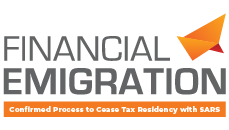BY THE NUMBERS: EXPAT TAX THROUGH THE LENS OF EXPERTISE
On the minds of many South African expatriates are the options which are available to them for tax relief in South Africa, given the many changes made to the tax laws in South Africa.
However, it appears that these issues are not only highly relevant for taxpayers themselves, but also for the tax practitioners who are appointed to assist in meeting their obligations with SARS.
Tax Consulting South Africa had the privilege of hosting the first Expat Tax 101 webinar with the South African Institute of Tax Professionals (SAIT) on 29 April 2021. With some 495 attendees registered for the event, this was certainly one of the largest turnouts for such an event in recent memory.
One of the main takeaways was that there is an urgent need for more upskilling and expertise in expatriate tax. 64,4% of the tax practitioners in attendance indicated that they currently assist expatriate clients with tax services – this shows the prevalence of the issues faced by South African expats abroad from a tax perspective.
An eye-opening statistic drawn from poll results during the presentation was that 56,3% of tax practitioners confirmed that, in their experience, SARS is definitely conducting more aggressive audits. A further 24,8% of tax practitioners confirmed that SARS is indeed asking more substantive questions and 12,2% of attendees indicated that their practice is seeing very strange audits from SARS. This shows not only the sharpened focus of SARS in this area of tax law, but also that the audit process in relation to expatriates is still very much a moving target – while audits may have previously been somewhat generic and often relatively easy to manage, this is no longer the case.
On a more hopeful note, it is encouraging to see tax practitioners rising to the occasion and whetting their blades on the most pertinent issues concerning expatriate tax. While there certainly are still significant gaps in market expertise within this niche area of tax law, many practitioners are very conscious of the particular requirements of an expat clientele and should continue to take the correct steps in ensuring that their client’s obligations are properly met.
Expatriate tax is clearly still a growing area of tax, and it will be interesting to see where we eventually land from a legal and SARS policy perspective. Tax practitioners must continue to exercise precaution when dealing with their expatriate taxpayers’ affairs, with the non-disclosure of income and incorrect application of the relevant tax rules kept top of mind from a compliance enforcement perspective.
In the ever-changing landscape of expatriate tax, it is more important than ever to ensure that you have an effective tax partner to help guide the way. Whether you are a taxpayer or a tax practitioner, it is prudent to take the right first step towards responsible tax management in these cases and ensure smooth interactions with SARS in this regard moving forward.
AUTHOR

Thomas Lobban
Legal Manager: Cross-Border Taxation



